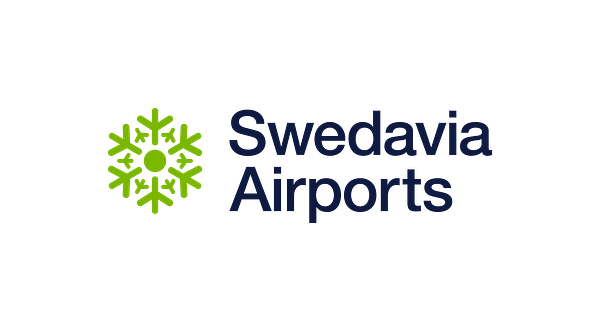Press release -
Swedavia promotes sustainable business travel through the annual public tender of sustainable aviation fuel
The airport operator Swedavia continues to contribute to the aviation industry’s climate transition through the annual public tender of sustainable aviation fuel (SAF) that Swedavia organizes with the aim of promoting sustainable business travel. The public tender makes it possible for Swedavia but also for other companies and organizations to reduce the climate footprint of their business trips, as sustainable aviation fuel has the potential to reduce lifecycle carbon dioxide emissions on average by up to 80% compared to the regular jet fuel it replaces. The 2023 public tender will begin in January and Swedavia is now welcoming more organizations to participate.
Since 2016, Swedavia has carried out an annual public tender for sustainable aviation fuel (SAF), to reduce the lifecycle climate emissions with respect to all of the company's own business trips. Within the framework of the public tender initiative, other organizations and companies are also offered to participate. Last year and for the third year running, in addition to Swedavia, a number of organizations and companies participated, such as the national emergency services provider SOS Alarm and the Gotland County Administration, and also the Port of Gothenburg.
“We can all contribute to sustainable travel, both as individuals and through our workplace – this applies to companies, organizations and authorities. Our public tender reduces the lifecycle emissions with respect to the individual business trip, but also contributes to increasing demand for the production of biofuel, which is necessary for aviation's climate transition,” says Lena Wennberg, chief sustainable development officer at Swedavia.
Through the public tender, nearly 170 tonnes of fossil-free sustainable aviation fuel were refueled in 2022, the majority of which were used by Swedavia. The fuel corresponds to roughly 3 000 round-trip passenger flights between Stockholm and Berlin and an estimated emission reduction of roughly 500 tons of carbon dioxide compared to regular jet fuel. The majority of the sustainable aviation fuel was refueled at Stockholm Arlanda Airport between December 25 and December 29.
“It is very gratifying that our partners choose to fly more sustainably for their business trips by participating in our public tender of sustainable aviation fuel. In this way, we all contribute to more sustainable travel and the transition to a fossil-free aviation sector in the future, which should be a natural part of the sustainable transport and transport system of the future. Our goal is of course for even more organizations to participate. I therefore want to take the opportunity to welcome more participants to this year's public tender, which will start in the next few weeks”, says Lena Wennberg at Swedavia.
The 2023 public tender will begin in January, with the opportunity for more organizations to participate and contribute to the transition by flying more sustainably in their business trips.
The sustainable aviation fuel is produced from used cooking oil and waste animal fats, among other materials, by the Finnish refiner Neste and is delivered by Air bp. In accordance with current fuel requirements, up to 50 per cent SAF is blended with traditional fuel and is used with existing aircraft technology and infrastructure at the airport. Using SAF, has the potential to reduce lifecycle carbon dioxide emissions on average by up to 80% compared to regular jet fuel. This emission reduction applies to the fuel in its pure form.
Swedavia works to promote the transition to sustainable air transport with the goal that five per cent of all fuel used for refuelling at Swedish airports should be fossil-free by 2025. We have for many years, worked for a transition towards sustainable air travel at all Swedavia-owned airports. We have made this transition and became fossil-free in our own airport operations in 2020. Under the Swedish government’s Fossil-Free Sweden initiative, on which we base our work, the goal is to reach fossil-free air travels for all domestic flights in Sweden by 2030. For international flights, all flights taking off from Swedavia’s airports are to be fossil-free by 2045.
Facts about the public tender
- The most recent public tender was carried out by Swedavia in the fall of 2022 and resulted in an agreement for the delivery of sustainable fuel. The delivery of the fuel took place between December 25 and December 29. The sustainable aviation fuel is purchased as a service and is used for refuelling at one of Swedavia’s ten airports. This produces an actual reduction in carbon dioxide emissions at the source. It is not a question of a carbon offset.
- In accordance with current fuel requirements, up to 50 per cent SAF is blended with traditional fuel and used with existing aircraft technology and infrastructure at airports.
- Sustainable aviation fuel contributes to the potential of reducing fossil carbon dioxide emissions by up to around 80 percent in the fuel's purest form. The emission reduction is made possible thanks to the raw materials from which the fuel is manufactured. However, some fossil fuels are used in the production chain, which therefore results in a final reduction of approximately 80 percent.
Topics
- Environment, Energy
Categories
- stockholm arlanda airport
- sustainability
- airports
- travel
- environment
The Swedavia Group owns, operates and develops ten airports across Sweden. Our role is to create the access Sweden needs to facilitate travel, business and meetings. Safe, satisfied passengers are the foundation of Swedavia’s business. Swedavia is a world leader in developing airports with the least possible environmental impact. In 2021, the Group had annual revenue of about 2.7 billion Swedish kronor and nearly 2,300 employees.
